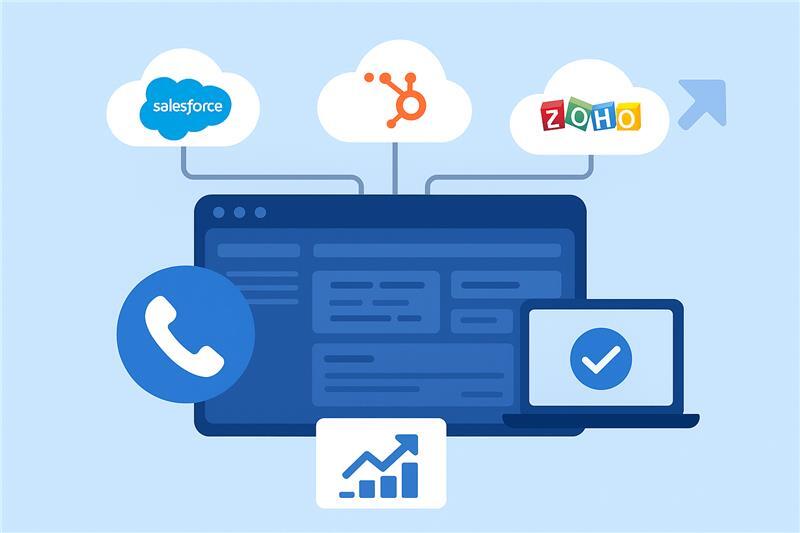
The Best Revenue Intelligence Tools in 2025 | Salesken AI
Are you leveraging the power of revenue intelligence to unlock your business's full potential? In today’s competitive landscape, these revenue intelligence tools have become game-changers for companies looking to streamline their sales processes, boost forecasting accuracy, and fuel revenue growth.
Organizations should consider adopting revenue intelligence tools for several compelling reasons. These revenue intelligence platforms not only enhance operational efficiency but also drive significant revenue growth and improve decision-making processes.
Backed by impressive stats, revenue intelligence platforms are proving their worth across industries. Let’s dive into some of the top revenue intelligence tools of 2025 and explore the evidence that makes them indispensable for driving success.
What is revenue intelligence?
Revenue intelligence uses AI and data to help sales teams identify risks and opportunities in their pipeline. It provides real-time insights that help teams close more deals and hit their sales targets.
Revenue intelligence tools work by analysing customer interactions and tracking sales performance. These insights appear directly in the CRM, making it easy for teams to act. Sales reps get clear dashboards, deal alerts, sales trend charts, and team performance reports all designed to improve forecasting and drive revenue growth.
The Benefits of Revenue Intelligence Tools
1. AI-Driven Revenue Insights
Revenue intelligence tools aggregate and analyze vast amounts of data across different business functions, providing actionable insights.
- Did you know? Companies using revenue intelligence for Sales team are twice as likely to significantly exceed their sales goals compared to those that do not use these tools.
2. Enhanced Decision-Making
These revenue analysis tools power leaders to make informed decisions using real-time data and predictive analytics.
- Statistical Insight: A study found that organizations leveraging revenue intelligence can reduce forecasting errors by between 20 and 50%, allowing for better planning and resource allocation.2
3. Increased Revenue Opportunities
With deeper insights into customer needs and market trends, organizations can identify new revenue opportunities.
- Proven Results: Gong's platform has shown a 481% return on investment (ROI) over three years, demonstrating how effective these revenue intelligence tools can be in driving profitability.3
4. Improved Sales Efficiency
Revenue intelligence automates data collection and analysis, freeing up sales teams to focus on high-value activities.
- Sales Productivity: Companies that implement these tools report improved sales productivity, with sales representatives spending significantly less time on administrative tasks.4
5. Better Forecasting Accuracy
Advanced analytics provided by revenue intelligence tools lead to more accurate sales forecasts.
- Insights for Long-term Financial Stability: Organizations utilizing these platforms experience enhanced financial stability, as accurate forecasting supports better strategic planning and resource allocation.5
6. Higher Customer Retention
By analyzing customer interactions and behaviors, revenue intelligence helps organizations tailor their customer lifecycle management.
- Customer Insights: Businesses that adopt revenue intelligence systems often see improved customer satisfaction rates, leading to higher retention and increased customer lifetime value.
7. Competitive Advantage
Revenue intelligence solutions provides agility in adapting to market changes, enabling businesses to stay ahead of competitors. Optimize business revenue models for your business and adjust your pricing strategies to maximize profitability.
- Optimize Revenue Models: AI Sales intelligence Tools gives marketers accurate buyer insights, streamlining content mapping and creation, while real-time company data helps sales teams enhance lead generation and close deals faster.6
The adoption of revenue intelligence tools offers substantial benefits that can transform an organization's approach to sales and revenue generation. The evidence underscores the effectiveness of these platforms in enhancing decision-making, increasing efficiency, and ultimately driving growth.
The Best Revenue Intelligence Software and Tools for 2025
Here are the top revenue intelligence vendors and best revenue operations and intelligence software for 2025:
Salesken.AI
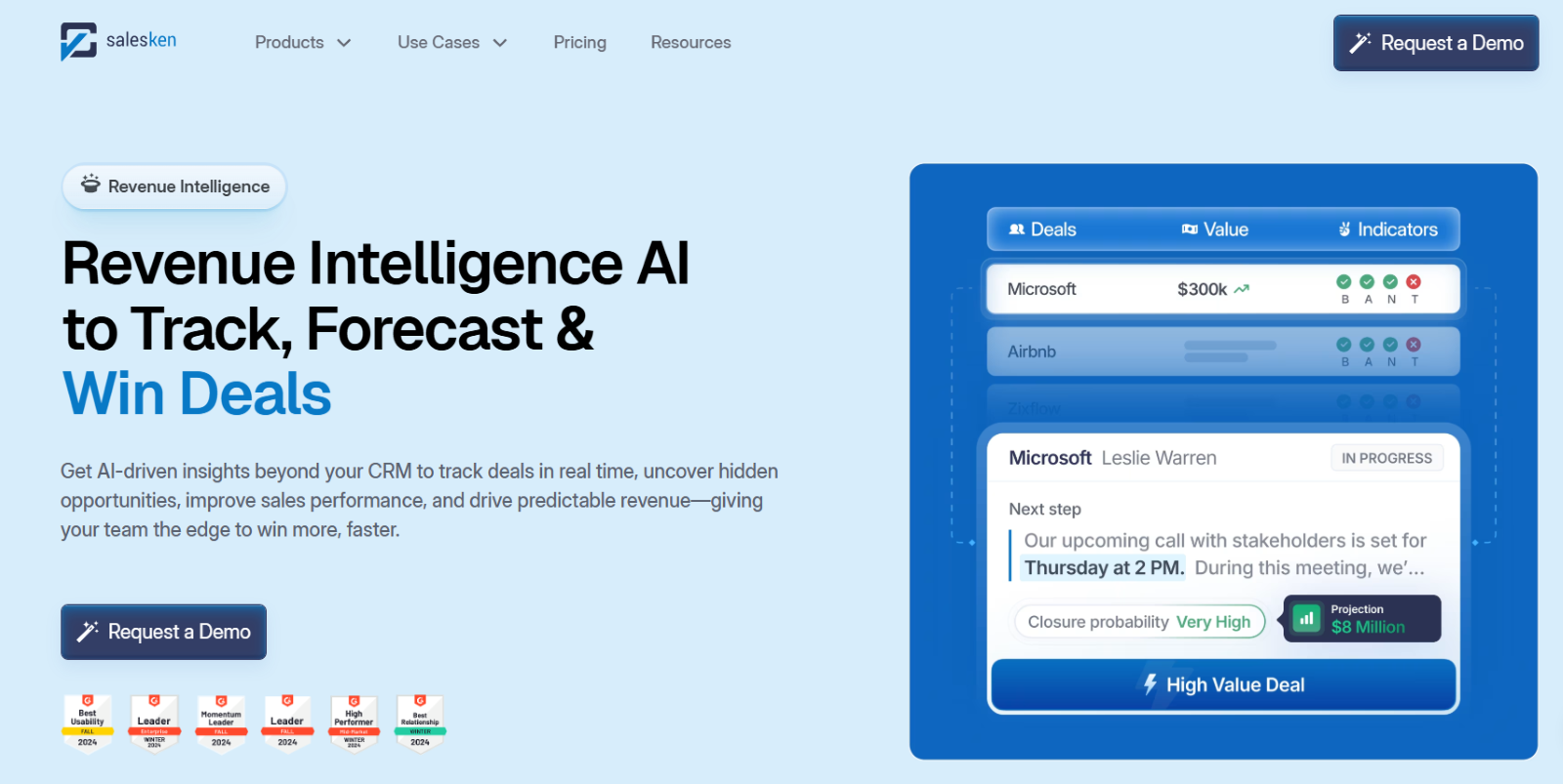
Salesken is an AI-powered Revenue Intelligence tool designed to enhance sales conversations through real-time analytics. Its notable features include:
Conversation analytics: Analyzes sales calls to identify trends and provide coaching tips through deal intelligence software.
Forecasting capabilities: Helps predict revenue intelligence trends and manage pipeline performance effectively.
Integration with multiple platforms: Allows for a holistic view of sales strategies by connecting with various tools.
Ideal for: Sales teams of all sizes looking for AI-powered sales automation and lead scoring.
Gong
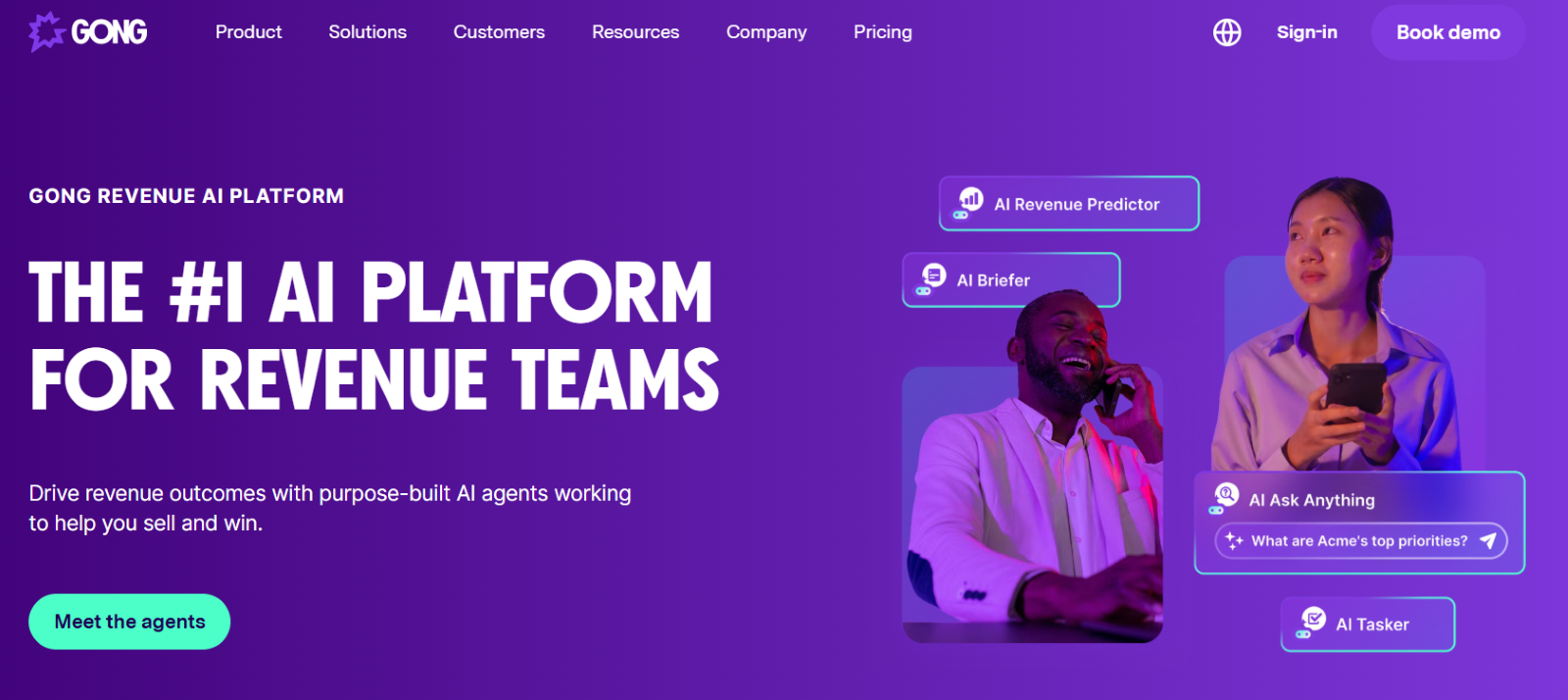
Gong is a leading AI-driven revenue intelligence platform that focuses on transforming sales growth through comprehensive analytics. It records sales calls and meetings, providing insights into customer interactions by analyzing sentiment and engagement. Key features include:
- Sales coaching: Offers actionable feedback based on call analysis.
- Sales Forecasting: Utilizes historical data to predict deal outcomes and pipeline health.
- Integration: Works seamlessly with various CRM systems and communication tools like Salesforce and Microsoft Teams.
Ideal for: B2B sales teams with complex sales cycles, focusing on coaching and improving individual rep performance.
Clari
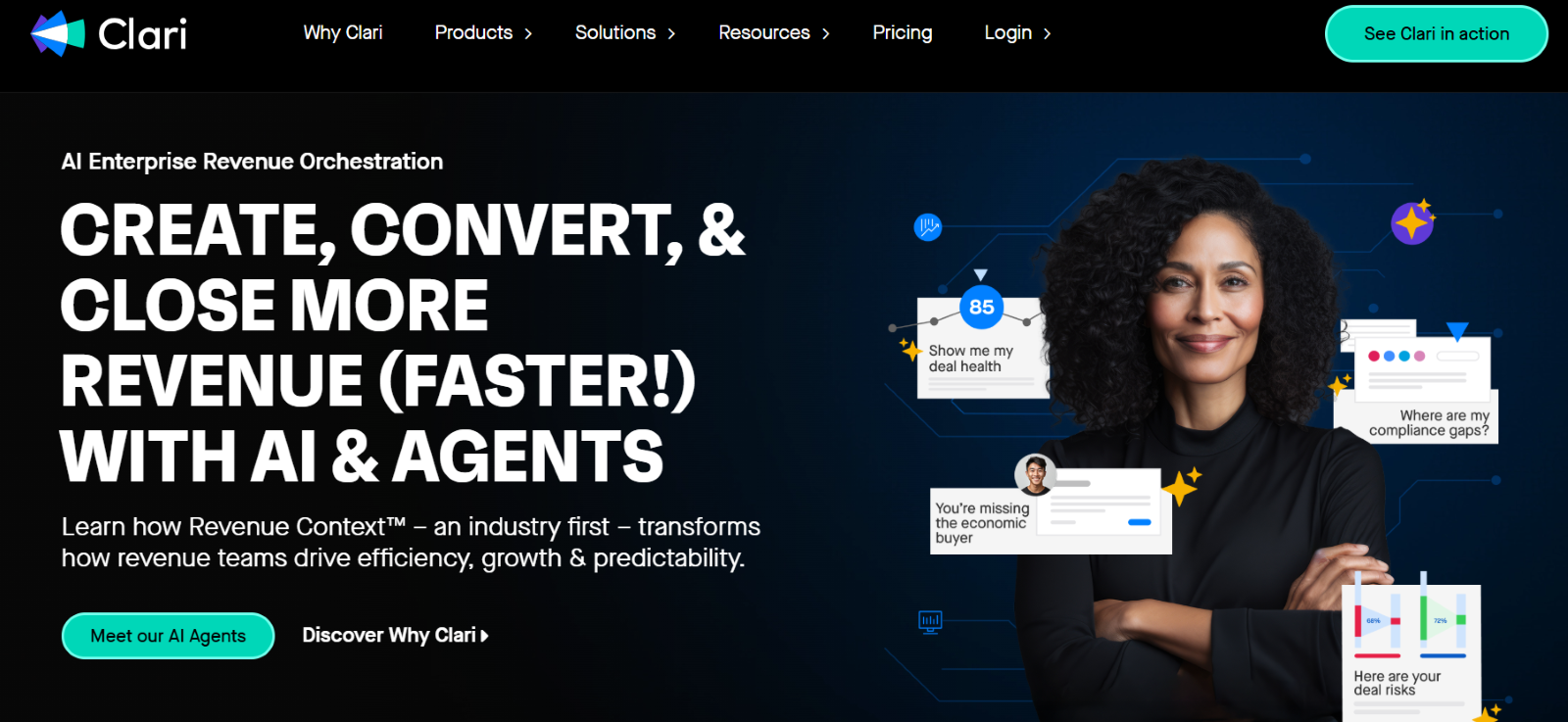
Clari stands out for its robust RevOps capabilities, helping organizations manage revenue operations effectively as one of the best revenue operations & intelligence software. Its main features include:
- AI Meeting Assistant: Records and transcribes meetings, extracting valuable insights.
- Deal forecasting: Provides analytics on deal health, potential risks, and improvement areas through revenue growth tools.
- User-friendly dashboard: Offers a comprehensive view of sales activities and performance metrics.
Ideal for: B2B revenue teams (sales, marketing, customer success) looking to improve alignment and forecast accuracy.
HubSpot Sales Hub
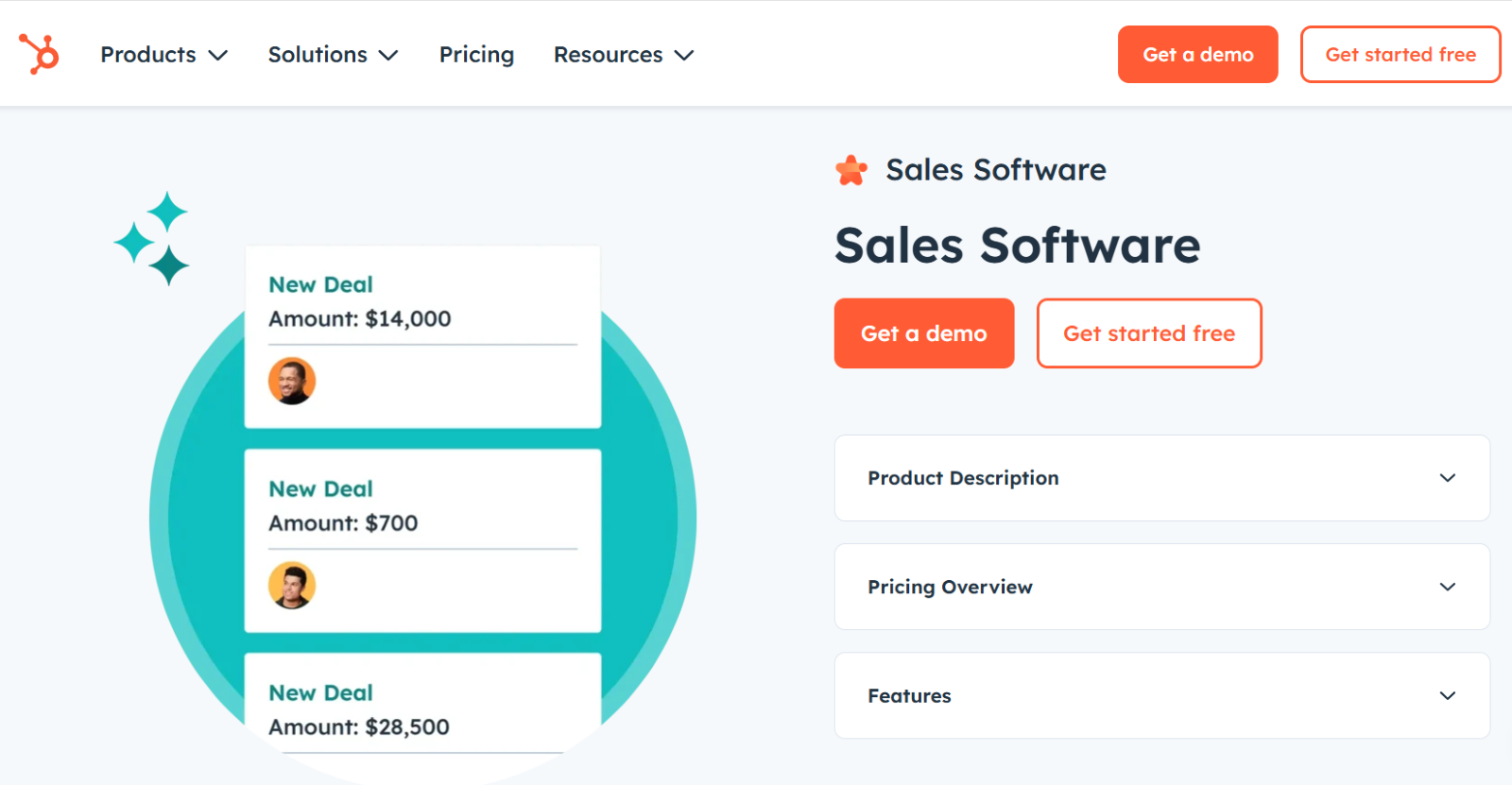
HubSpot offers a comprehensive Sales Hub that integrates seamlessly into its broader CRM ecosystem. Key features include:
- Sales automation: Streamlines processes like lead management and follow-ups.
- Conversational intelligence: Analyzes customer interactions to improve engagement strategies.
- Customizable dashboards: Provides insights tailored to specific business needs.
Ideal for: Small and medium-sized businesses (SMBs) with inbound marketing strategies and focus on building relationships.
Xactly
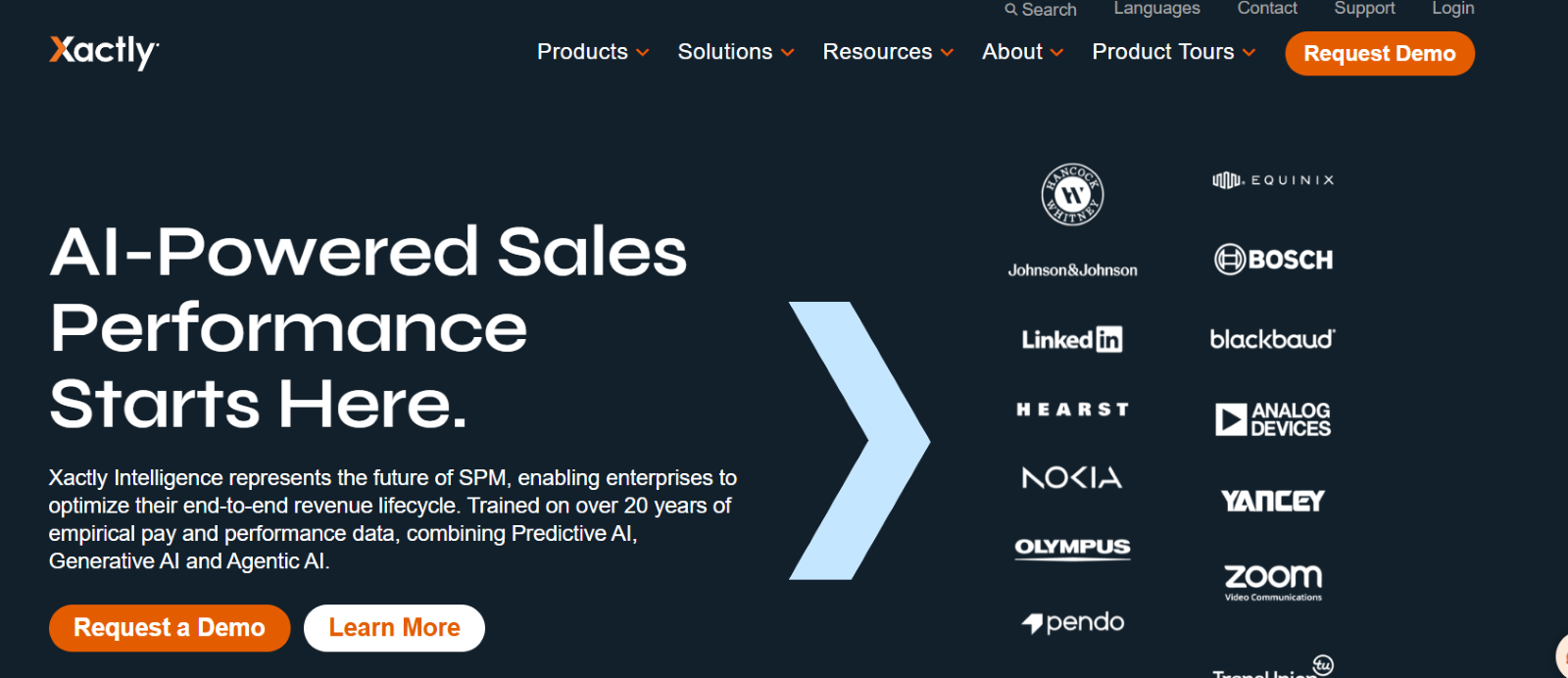
Xactly provides a suite of solutions focused on revenue data analysis. Its main features include:
- Forecasting tools: Helps manage pipelines with predictive analytics.
- Performance analytics: Offers insights into compensation and performance metrics across teams.
- Market benchmarking: Compares performance against industry standards to identify areas for improvement.
Ideal for: Sales organizations across all industries needing incentive compensation management and sales performance optimization.
Nektar.AI
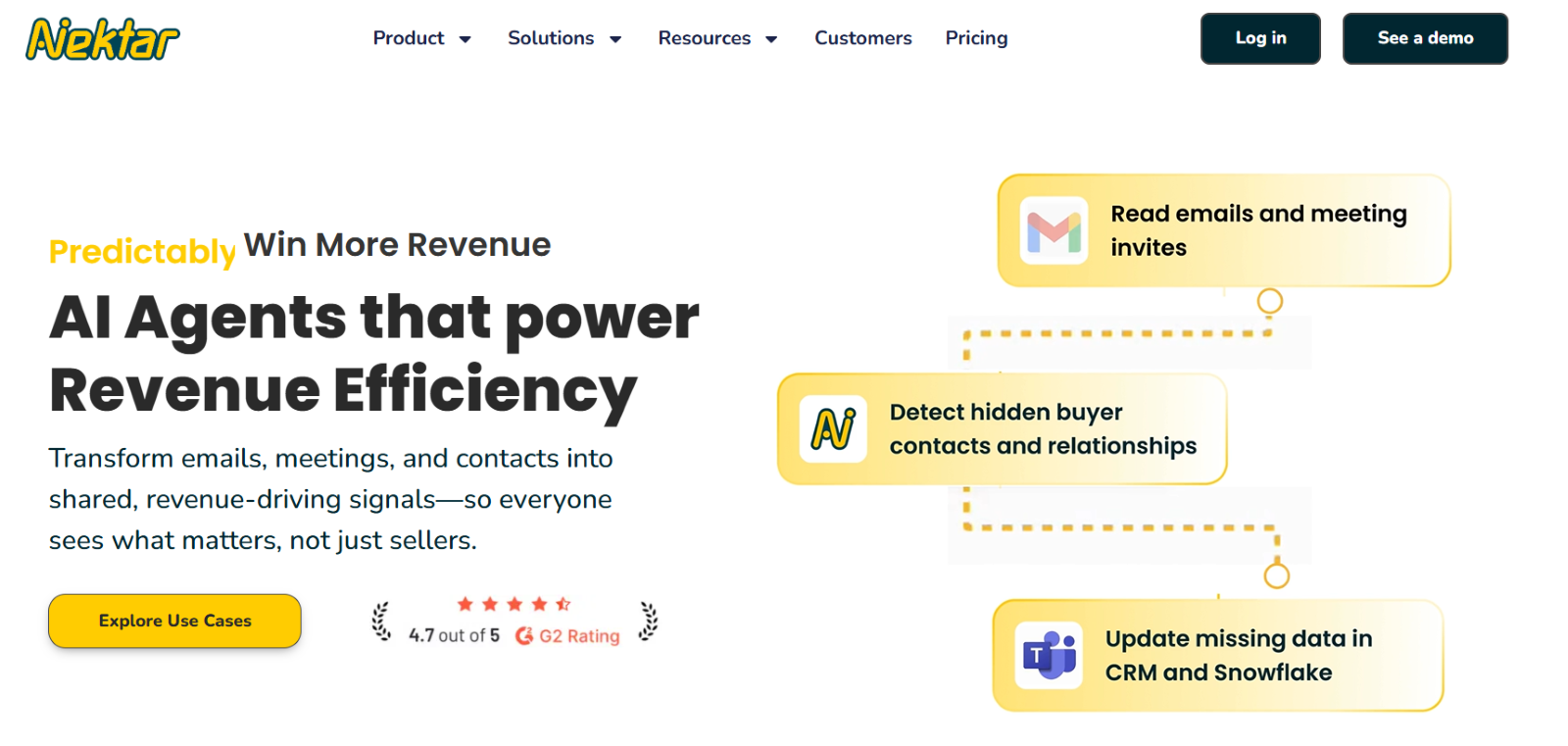
Nektar.ai specializes in automating CRM data entry while providing full-funnel visibility. Its features include:
- Self-healing CRM capabilities: Automatically captures contact data to enhance CRM accuracy.
- Quick implementation: Can be set up in under a week, providing immediate value.
Ideal for: B2B revenue teams looking for AI-powered sales forecasting and pipeline management.
Conclusion
In summary, the best revenue intelligence tools offer significant statistical advantages that can drive business growth. With reported increases in win rates, revenue growth, and forecasting accuracy, these revenue intelligence platforms provide compelling reasons for organizations to adopt them as part of their sales strategy.
Investing in the right revenue intelligence tool like Salesken organizations can leverage data-driven insights, navigate the complexities of the modern market more effectively and capitalize on emerging opportunities.Book a demo with Salesken today!
FAQs
1. What are revenue intelligence tools?
Revenue intelligence tools use AI and data analytics to gather and analyze sales data, providing insights that help improve sales performance and decision-making.
2. How do revenue intelligence tools improve sales?
They automate data collection, analyze customer interactions, and offer actionable insights, enabling sales teams to focus on closing deals and improving forecasting accuracy.
3. Do these tools enhance sales forecasting?
Yes, they use predictive analytics to reduce forecasting errors and provide more accurate sales predictions based on historical and real-time data.
4. What benefits do these tools offer?
They increase sales efficiency, improve decision-making, offer real-time coaching, and help boost customer engagement and retention.
5. Are revenue intelligence tools useful for all businesses?
Yes, businesses of all sizes can benefit from enhanced data-driven insights, improved sales processes, and better customer management.

.png)
